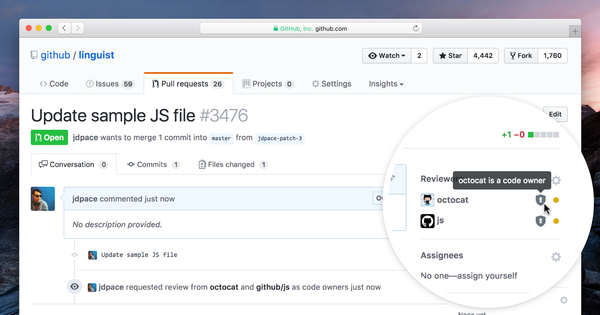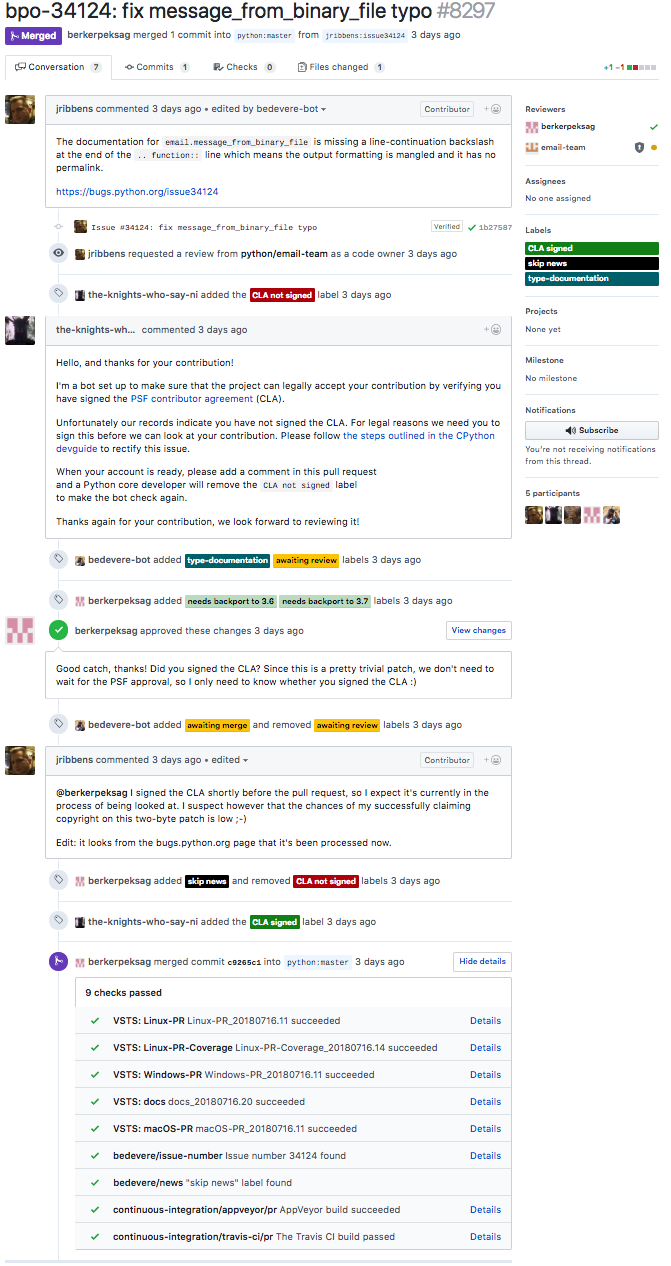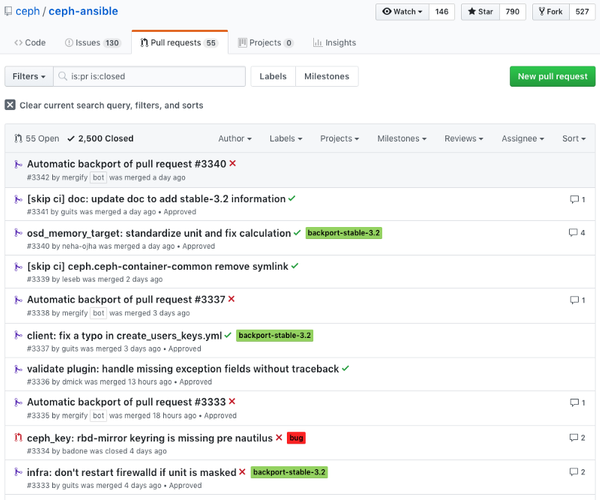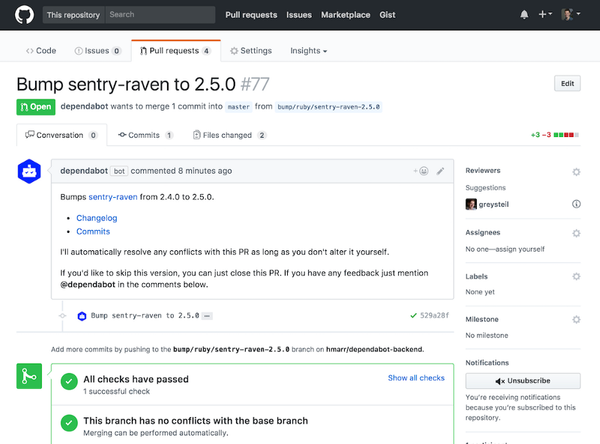
Best Practices
GitHub CODEOWNERS on steroids
For the last few years, GitHub has supported a feature named CODEOWNERS [https://help.github.com/en/github/creating-cloning-and-archiving-repositories/about-code-owners] . If you never heard of it, it’s a file that you can put in your repository, and that will make GitHub assigned pull request reviews to users or teams.








